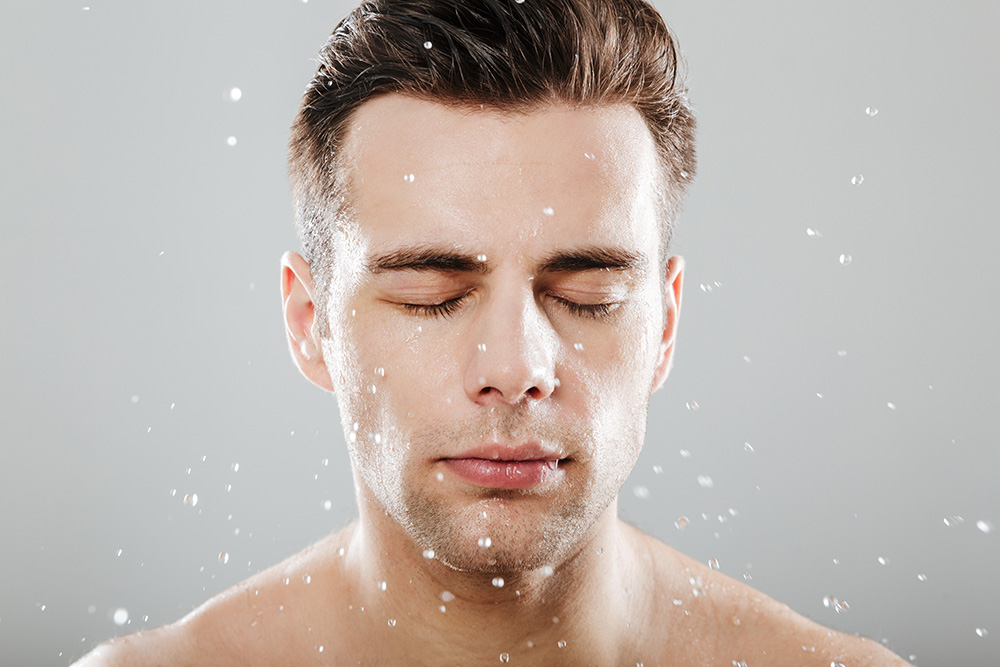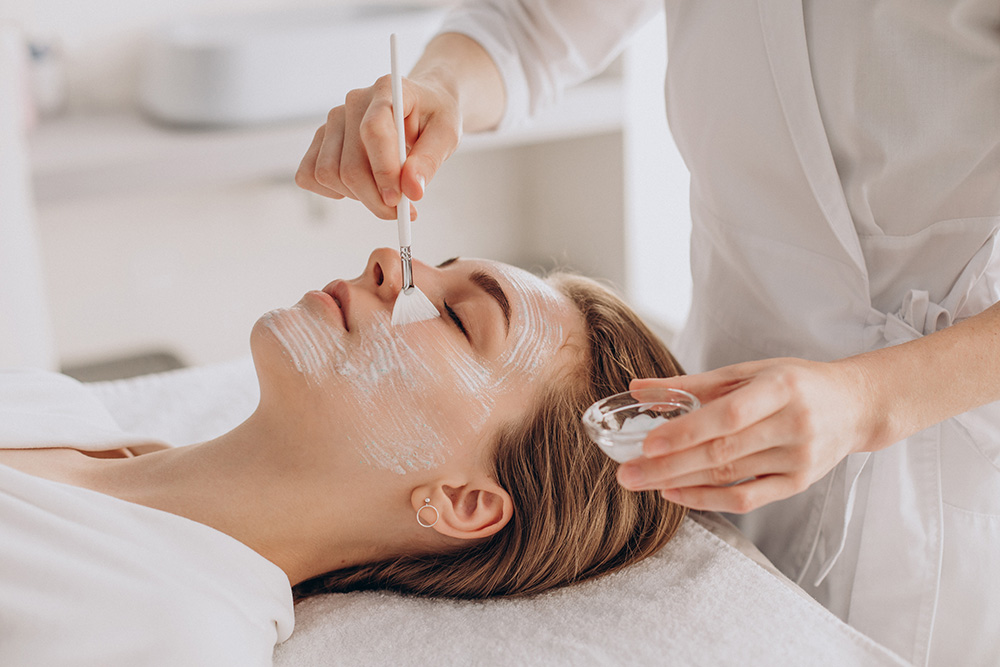
In recent years, men have become increasingly aware of caring for their skin. While the basic skincare principles apply to both men and women, there are some specific considerations that men should consider when developing a skincare routine. This article will discuss essential tips for men to achieve and maintain a healthier complexion.
1. Cleanse Regularly
Cleansing is the foundation of any effective skincare routine. Men should wash their face twice daily, in the morning and evening, using a gentle cleanser suited to their skin type. Those with oily skin may benefit from a foaming or gel cleanser, while men with dry or sensitive skin should opt for a creamy, hydrating formula. Avoid harsh bar soaps, as they can strip the skin of natural oils and disrupt its pH balance [1].
2. Exfoliate Weekly
Exfoliation helps remove dead skin cells, unclog pores, and promote cell turnover, leading to a brighter, smoother complexion. Men should exfoliate once or twice a week using a gentle scrub or chemical exfoliant, such as alpha-hydroxy acids (AHAs) or beta-hydroxy acids (BHAs). Be careful not to over-exfoliate, as this can cause irritation and damage to the skin's protective barrier [2].
3. Moisturize Daily
Moisturizing is crucial for maintaining skin hydration and preventing premature aging. Men should apply a moisturizer daily, ideally after cleansing and shaving. Look for a lightweight, non-greasy formula that suits your skin type. Those with dry skin may benefit from a richer, more emollient moisturizer, while men with oily or acne-prone skin should choose a water-based, non-comedogenic product [3].
4. Protect from Sun Damage
Sun exposure is a leading cause of premature skin aging, hyperpigmentation, and skin cancer. Men should protect their skin from harmful UV rays by applying a broad-spectrum sunscreen with an SPF of at least 30 daily, even on cloudy days. Look for a lightweight, non-greasy formula that won't leave a white cast on the skin. Remember to reapply sunscreen every two hours, or more frequently if swimming or sweating excessively [4].
5. Shave Carefully
Shaving can be a significant source of skin irritation for men. To minimize razor burns, ingrown hairs, and skin damage, always shave in the direction of hair growth using a clean, sharp razor. Prep the skin by washing it with warm water and applying a shaving cream or gel to soften the hair and protect the skin. Rinse the blade after each stroke and follow up with a soothing, alcohol-free aftershave balm to calm and hydrate the skin [5].
6. Manage Stress
Stress can take a toll on your skin, leading to breakouts, dullness, and premature aging. To promote a healthier complexion, men should prioritize stress management techniques such as regular exercise, meditation, deep breathing, and getting enough sleep. These practices can help regulate hormones, reduce inflammation, and promote a more youthful, vibrant appearance [6].
7. Stay Hydrated and Eat a Balanced Diet
Drinking plenty of water and consuming a balanced diet rich in fruits, vegetables, lean proteins, and healthy fats can significantly impact skin health. Staying hydrated helps maintain skin moisture, elasticity, and resilience, while a nutrient-dense diet provides the building blocks for collagen production, cell repair, and overall skin function [7].
Conclusion
Adopting a comprehensive skincare routine is essential for men who want to achieve and maintain a healthier, more youthful complexion. By cleansing regularly, exfoliating weekly, moisturizing daily, protecting from sun damage, shaving carefully, managing stress, and staying hydrated and nourished, men can significantly improve the appearance and health of their skin. Consistency is key in skincare, so make these habits a regular part of your daily routine for the best results.
References
- Dreno, B., Araviiskaia, E., Berardesca, E., Gontijo, G., Sanchez Viera, M., Xiang, L. F., Martin, R., & Bieber, T. (2016). The science of dermocosmetics and its role in dermatology. Journal of the European Academy of Dermatology and Venereology, 30(11), 1842-1851. https://doi.org/10.1111/jdv.13824
- Rodan, K., Fields, K., Majewski, G., & Falla, T. (2016). Skincare Bootcamp: The Evolving Role of Skincare. Plastic and Reconstructive Surgery Global Open, 4(12 Suppl), 1-21. https://doi.org/10.1097/GOX.0000000000001152
- Lodén, M. (2003). Role of topical emollients and moisturizers in treating dry skin barrier disorders. American Journal of Clinical Dermatology, 4(11), 771-788. https://doi.org/10.2165/00128071-200304110-00005
- Jou, P. C., Feldman, R. J., & Tomecki, K. J. (2012). UV protection and sunscreens: What to tell patients. Cleveland Clinic Journal of Medicine, 79(6), 427-436. https://doi.org/10.3949/ccjm.79a.11110
- Draelos, Z. D. (2009). Cosmetic therapy for the male patient. Dermatologic Therapy, 22(3), 273-277. https://doi.org/10.1111/j.1529-8019.2009.01243.x
- Chen, Y., & Lyga, J. (2014). Brain-skin connection: Stress, inflammation and skin aging. Inflammation & Allergy-Drug Targets, 13(3), 177-190. https://doi.org/10.2174/1871528113666140522104422
- Palma, L., Marques, L. T., Bujan, J., & Rodrigues, L. M. (2015). Dietary water affects human skin hydration and biomechanics. Clinical, Cosmetic and Investigational Dermatology, 8, 413-421. https://doi.org/10.2147/CCID.S86822
Latest Posts
-
1
-
2
-
3
-
4
-
5





